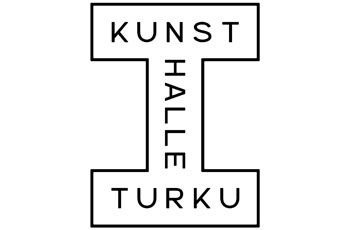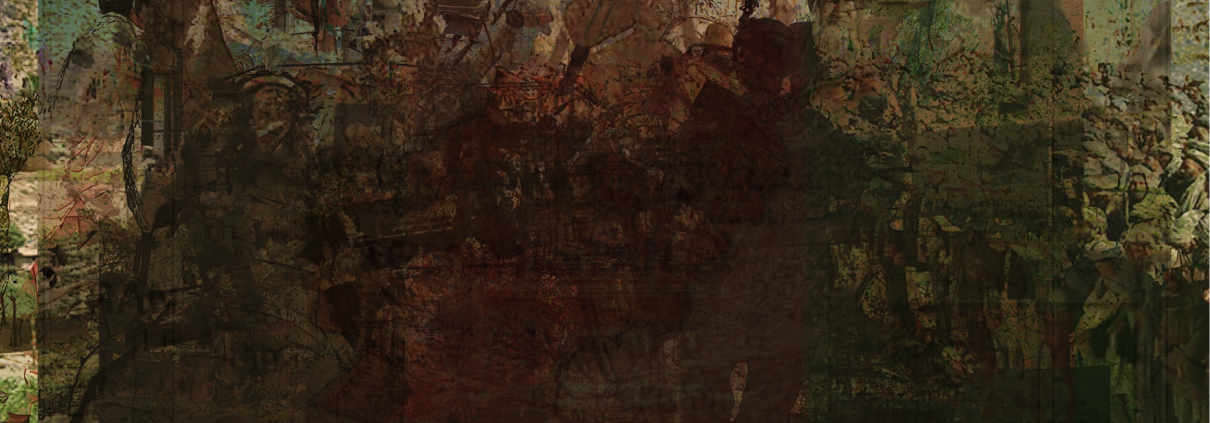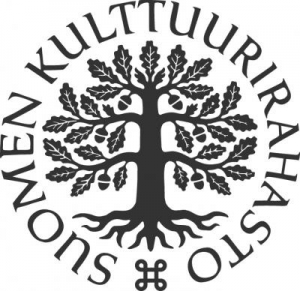2019 is the year when Afghanistan celebrates its 100 years of independence. The same year is also an anniversary of the beginning of the Afghan-Soviet war, which acted as a catalyst for the conflict that has been tormenting the country until now.
Celebrating the anniversaries, Anna Knappe’s and Amir Jan’s Afghanistan 100 installation presents the artist duo’s new film Warland, photographic prints and painted War rugs. The installation is a part of their series of video installations titled Mohajers, Camps and Imaginary Homes.
Warland is a film about belonging to a place one does not know or recognize as home. In the film, young Afghan migrants who were born outside Afghanistan, talk about their so-called homeland which they have never seen. For Afghan migrants, the homeland is not only a matter of identity, but also the place where they are forcefully deported when their residence permits in other countries end or are not granted, or when they are born in a country that does not recognize them.
Forceful deportations, no matter how they are justified by the deporting society, are traumatic experiences for the individuals who are forced to experience them. Deportations and detentions destroy dreams, separate families, and create displacement by embedding the experiences in the collective memory of generations. For the young Afghans in the film, this collective memory then becomes part of their national identity, part of what being an Afghan means.
The film is a collaboration between the artists Anna Knappe and Amir Jan and the group of participants who gathered in camps to share their experiences of detentions and deportations. Warland was filmed in Greece in 2018 and 2019 and it also includes phone camera footage from Afghanistan, filmed by Mojtaba Babakhani. The production of the film was supported by Taike and Kone Foundation.
ARTISTS
Anna Knappe and Amir Jan have been working as an artist duo since 2010, producing cinematic works, media installations and photographic works dealing with the various experiences of Afghan diaspora communities. Their work analyses how words and language form the ‘Mohajer’ identity of Afghan migrants, never-ending migrancy, life in camps, and stories of homes by people without a home country. Anna Knappe and Amir Jan are currently collaborating in a multidisciplinary project combining sociological and anthropological perspectives with art. The Kone Foundation-funded research project, titled “Neighbourhood Solidarities as a Response to the Asylum ‘Crisis’”, is situated in Sociology at the Faculty of Social Sciences at the University of Helsinki.









